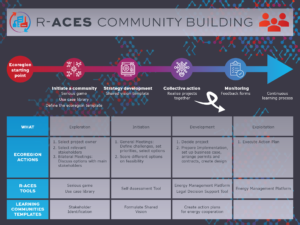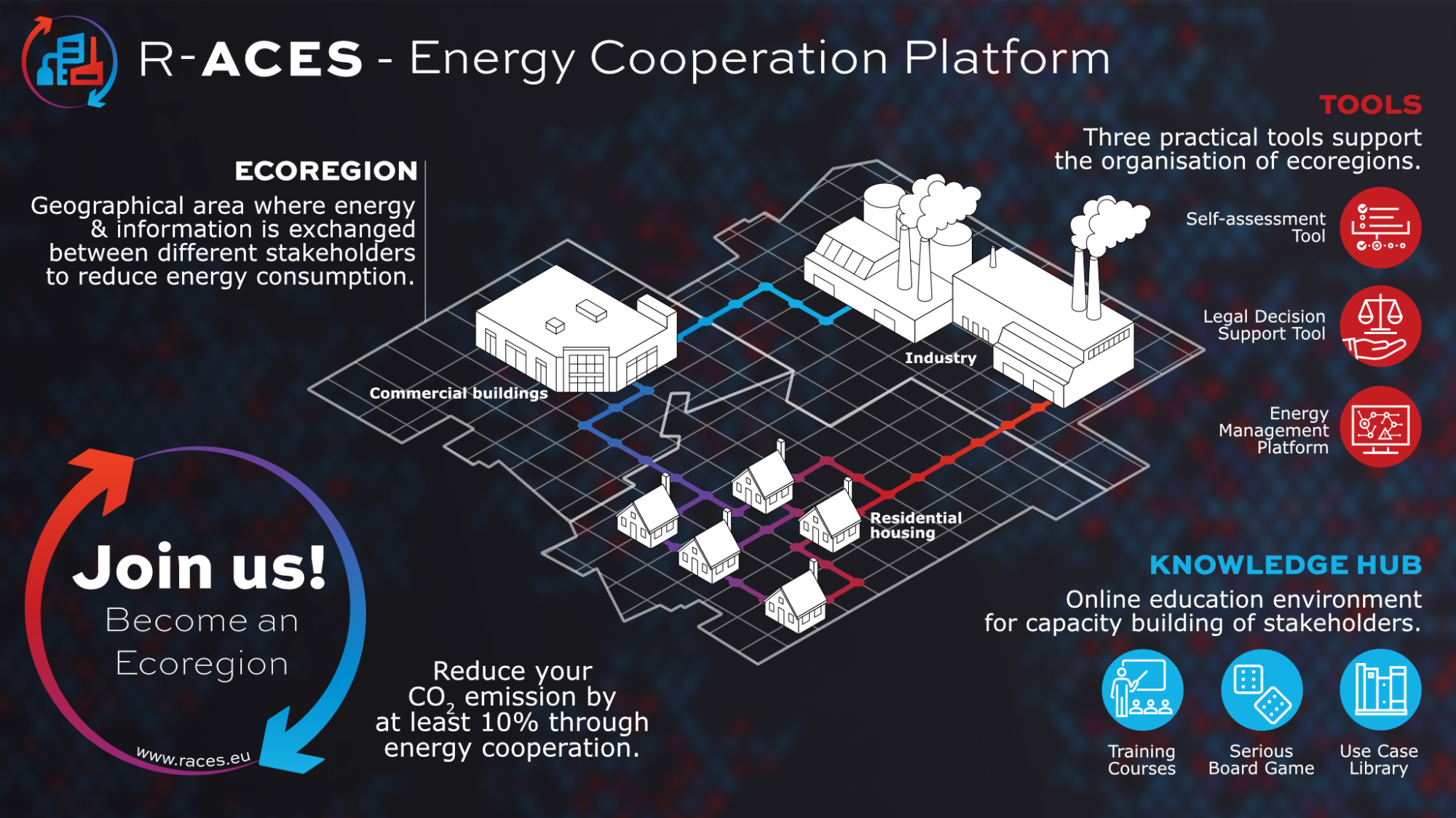The establishment of an energy cooperation project is a complex process requiring different stakeholders, skills, and knowledge in various project phases. Managing such a project is seen as a time intensive and difficult task. The R-ACES consortium would like to ease this managing task by providing tools and templates that help energy professionals with this task. Of course, there is no one-size-fits-all solution for all potential managerial issues. The management of such multi-stakeholder processes depends on very local conditions. Nevertheless, we would like to help managers to make better decisions regarding the establishment of their energy cooperation project; e.g. who to involve, what steps one should go through, how to create motivation and/or how to set up an action plan. The templates provided here help you with your energy cooperation project.

